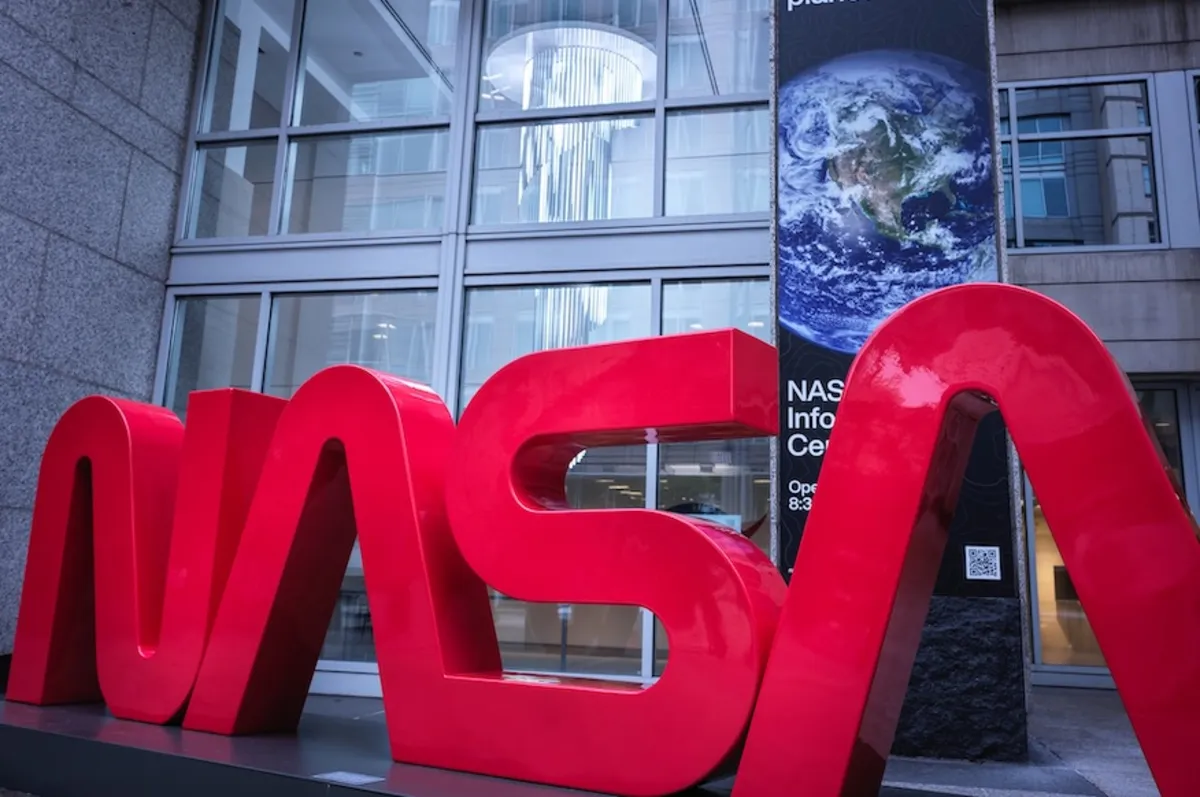
The White House unveiled its proposed federal spending budget for Fiscal Year 2026 on May 3, coinciding with National Space Day. The budget includes significant cuts to many areas of discretionary spending, notably affecting NASA. If the proposed cuts are implemented, the agency's funding could plummet by an alarming 24.3%, reducing its budget from approximately $24.8 billion in FY25 to around $18.8 billion in FY26.
Nasa had been anticipating a budget increase to recover from the stagnation of previous years, which were essentially held at FY24 spending levels. The proposed budget cuts would severely impact NASA's space and Earth science divisions, which are projected to lose about $2.3 billion and $1.2 billion, respectively. In contrast, funding for Human Space Exploration is set to exceed $7 billion, with an added $1 billion earmarked for new Mars-focused programs. The White House believes these investments will maintain America’s leadership in human space exploration.
In a statement, acting NASA Administrator Janet Petro expressed her appreciation for the President’s ongoing support for NASA's mission, emphasizing the importance of continued funding to achieve groundbreaking scientific goals. However, the budget proposal includes harsh cuts, specifically targeting the Mars Sample Return mission, which the administration criticizes as "grossly over budget." Additionally, funding for low-priority climate monitoring satellites is also on the chopping block, despite concerns over climate change highlighted by NASA's own scientists.
Former NASA Administrator Bill Nelson previously indicated that 2024 had set a record for the highest global temperatures, making climate monitoring more crucial than ever. In a letter sent on April 30 to congressional leaders, several organizations, including the American Astronomical Society and The Planetary Society, expressed their "profound alarm" at the proposed budget cuts, warning that these reductions would devastate space science research and the nation's STEM talent pipeline.
The proposed budget also threatens the future of the Artemis Program. While over $7 billion is allocated for lunar exploration and $1 billion for Mars programs, the budget suggests an early termination of the Space Launch System (SLS) rocket and the Orion spacecraft. The White House has labeled the SLS project as excessively costly, with each launch estimated at $4 billion and the program being 140% over budget.
In light of these proposed changes, NASA aims to transition to more cost-effective commercial systems to facilitate future lunar missions. Boeing and Lockheed Martin, the primary contractors for SLS and Orion, respectively, have not yet responded to inquiries regarding the implications of these budget proposals.
The proposed budget also indicates plans to eliminate the Gateway, an international lunar space station that involves collaboration with partners from Canada, Europe, Japan, and the United Arab Emirates. The first Gateway module is currently scheduled for launch in 2027 aboard a SpaceX Falcon Heavy rocket. NASA Press Secretary Bethany Stevens stated that the agency has communicated these budget-related changes to its international partners, although discussions remain confidential.
The potential cancellation of the Gateway could necessitate adjustments in the agency’s Human Landing System (HLS) program. The program, managed at NASA's Marshall Space Flight Center in Alabama, relies on the Gateway for the docking of landers, including Blue Origin’s Blue Ghost Mk. 2 and SpaceX’s Starship. Program manager Lisa Watson-Morgan acknowledged that while the commercial nature of HLS may buffer it from drastic changes, the uncertainty remains high.
The proposed budget cuts also extend to the International Space Station (ISS), with an anticipated reduction of over $500 million. This reduction aims to facilitate a transition to commercial space stations, which NASA plans to utilize as a customer. The budget proposal suggests decreasing the ISS's crew size and onboard research while preparing for its decommissioning by 2030.
Currently, NASA conducts crew rotation missions lasting approximately six months, during which numerous scientific experiments are performed. With the potential budget cuts, the future of these missions remains unclear, particularly as NASA and Boeing work to certify the CST-100 Starliner spacecraft for astronaut missions.
Ultimately, the proposed budget is just that—a proposal. The final decision rests with U.S. Congress, which will determine appropriations for FY26. Responses from various congressional leaders have been critical of the proposed cuts. Rep. George Whitesides, a former NASA Chief of Staff, labeled the budget request as "the biggest attack against the agency in recent history," emphasizing the risks to critical missions and the future of the STEM workforce in the U.S.
Moreover, Rep. Grace Meng criticized the proposed reductions as "shocking," warning that they would severely impact NASA’s research and education endeavors. In mid-April, Reps. Judy Chu and Don Bacon expressed their alarm over the potential cuts, highlighting the importance of NASA Science in driving job creation and technological advancements.
As the budget proposal undergoes scrutiny and debate, the future of NASA and the U.S. leadership in space exploration hangs in the balance.